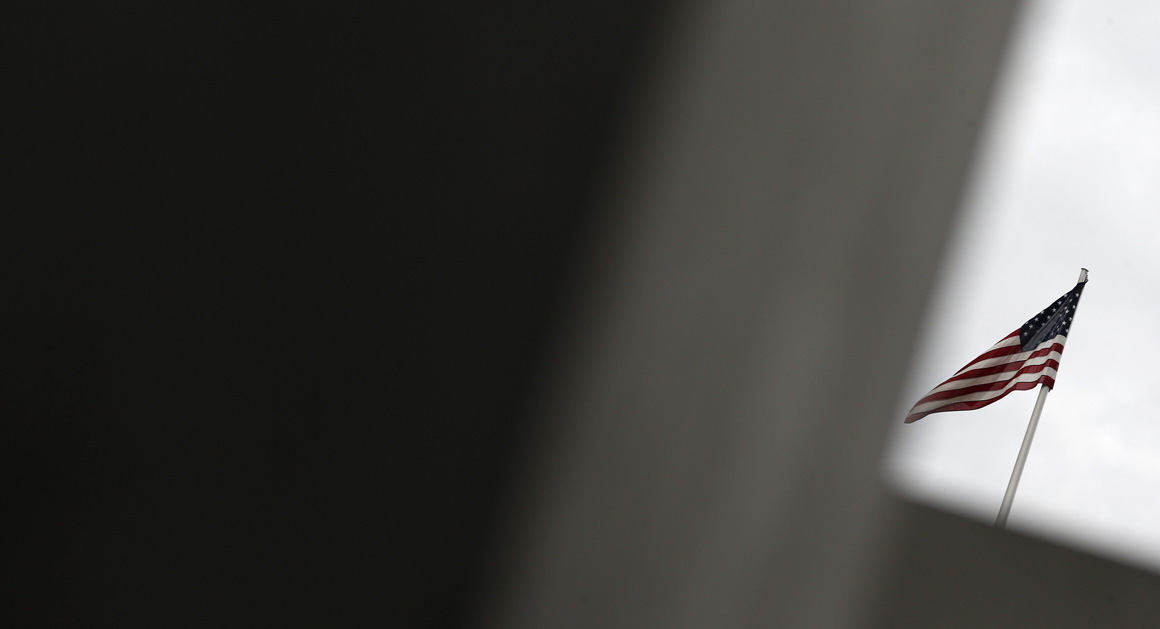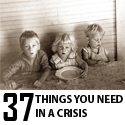 We are facing a profound crisis in American political life, with significant and arguably lasting implications for our country.The American people are at record lows in terms of confidence in government and American institutions, and the ability of the system to withstand the kind of shocks the recent government shutdown, debt crisis and controversy over Obamacare have produced is open to question.
We are facing a profound crisis in American political life, with significant and arguably lasting implications for our country.The American people are at record lows in terms of confidence in government and American institutions, and the ability of the system to withstand the kind of shocks the recent government shutdown, debt crisis and controversy over Obamacare have produced is open to question.
This isn’t just a short-term development or trend. Rather it reflects a profound and long term decline in confidence and trust in a system we have all been brought up to instinctively believe is without peer or equal.
A detailed examination of recently released survey data on the state of the American nation shows how perilous a state we have reached.
No group has been spared. We don’t trust the federal government or our representatives, no matter the party.
 The core of President Obama’s appeal is gone. The share of Americans who view him as “honest and trustworthy” has dipped five points since September from 55 percent to 50 percent, according to Gallup’s latest figures. And it’s down from 60 percent in mid-2012, when the president was heading toward re-election. According to the latest Fox News poll, half of voters believe the president “knowingly lied” when he told Americans they could keep their plans under Obamacare.
The core of President Obama’s appeal is gone. The share of Americans who view him as “honest and trustworthy” has dipped five points since September from 55 percent to 50 percent, according to Gallup’s latest figures. And it’s down from 60 percent in mid-2012, when the president was heading toward re-election. According to the latest Fox News poll, half of voters believe the president “knowingly lied” when he told Americans they could keep their plans under Obamacare.
The dip in the president’s honesty rating is not a blip, but part of long-term decline in confidence in government and institutions that represents and unraveling of a system where nobody is trusted at all.
As the president who promised the most fair and transparent administration in history, Obama has failed on both counts. He undercuts himself by not dealing in specifics and is even being undercut by fellow Democrats like former President Bill Clinton, and others who are now threatening to abandon the president on central elements of his health-care law.
For the first time, voters want to defeat all members of Congress. Rasmussen figures show that close to 80 percent of Americans say that they’d throw out the entire Congress and start over.
The perceived need for a third party has reached new highs. A whopping 60 percent of Americans say that the Democrats and Republicans do such a poor job of representing their interests that a major third party is needed. This is the highest Gallup has measured in the 10 years it has been asking this question.
As Gerry Seib argues in the Wall Street Journal, there is a growing, radicalized center in the country that is searching for a third party or independent force to be a pragmatic problem solver and an oppositional force to dysfunctional Washington. This is where the future of American politics is headed.
As a result, no one or no institution has credibility in America today. The dip in the president’s honesty rating is not a blip, but part of long-term decline in confidence in government and institutions that represents and unraveling of a system where nobody is trusted at all.
Gallup’s annual trust poll shows that a mere 19 percent of Americans trust the government in Washington to do what’s right just all or most of the time, compared with 81 percent who say that they only trust the government to do what’s right only some of the time or never. It was at 32 percent and 67 percent in the middle of George W. Bush’s second term. And if we look back decades, 73 percent of Americans trusted the government in 1960.
Less than 50 percent trust the federal government to handle international (49 percent) and domestic problems (42 percent). This represents a 17 and 9-point dip, respectively, over the past year, and tremendous losses of more than 25 percentage points since 1972 when Gallup started asking the question.
Only 34 percent trust the legislative branch to do what’s right all or most of the time, while 66 percent say that they only trust legislators to do what’s right only some of the time or never. This figure has been steadily declining over the last decade. In 2002, 67 percent of Americans trusted the legislative branch to do what’s right.
Approval ratings serve as another gauge for trust in government. According to the latest Economist/YouGov poll, Congressional approval is at a record low of 7 percent, with 77 percent of Americans reporting that they don’t support the decisions currently being made by Congress. Gallup and Fox News found similar numbers. A mere 10 percent approved of Congress hours before the government shutdown came into effect – the smallest percent in history that favored Congress, as of Oct. 1. And according to Gallup, more than 80 percent of Americans see the entire government as ineffective.
The Republican Party’s favorability rating has increased slightly since the government shutdown, but only 20 percent of Americans approve of the way Republicans in Congress are handling their jobs, as opposed to 73 percent who disapprove.
Democrats are not faring well themselves. Sixty-two percent of Americans disapprove of the way Democrats in Congress are handling their jobs in the latest Quinnipiac poll. And roughly 25 percent of all Americans see both parties unfavorably.
 These numbers tell a clear story: Our system isn’t working and it isn’t delivering for Americans. We are not providing health care, retirement and the basic services that give citizens confidence in their governments. The government shutdown wasn’t just a bug but, rather, emblematic of a broken system.
These numbers tell a clear story: Our system isn’t working and it isn’t delivering for Americans. We are not providing health care, retirement and the basic services that give citizens confidence in their governments. The government shutdown wasn’t just a bug but, rather, emblematic of a broken system.Put simply, we do not trust, respect or pay deference to those we have elected. People have largely rejected the fundamental the contract between the governed and the governors and without faith in this contract, we cannot have a functioning society.
 Trust is vital because it underpins any successful functioning of a government and an economy. Its absence, if deep enough and extending over a long period of time, creates corrosive damage to political and economic institutions along with social decline. This is what we are seeing today.
Trust is vital because it underpins any successful functioning of a government and an economy. Its absence, if deep enough and extending over a long period of time, creates corrosive damage to political and economic institutions along with social decline. This is what we are seeing today.
Politics has become a ridiculous game of attack ads and smears. There is no consensus on any issue, which has led to a dramatic loss of confidence in our leaders.
This harrowing lack of trust in confidence in politicians and institutions today has been a long time coming. It is something the political elite can no longer ignore, especially as we head toward the midterm elections next year.
What is keeping the American people from seeking alternatives is the absence of those alternatives, not a lack of desire for them. And as distrust and lack of confidence grows, it is our hope that these alternatives will enter the field.
As it stands, our system only serves the elite, not the mass public. And the American people know it. This is a broad, major trend in American political life that cannot be ignored or swept under the rug any longer.
Source : politico.com
Author : DOUGLAS E. SCHOEN and PATRICK H. CADDELL

Leave a Reply